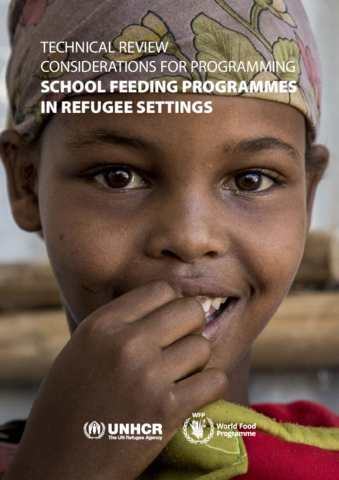
Nearly a quarter of the world’s children are estimated to live in conflict- or disaster-affected areas that have experienced protracted crises classified by WFP as level 3 emergencies.
Children, especially girls, are more likely to be out of school in conflict-affected countries.
Worldwide, school feeding has become a comprehensive institutionalized part of a child’s education and development. In refugee settings, school meals amongst others represent a safety net, serve as a tool to increase access to school, health and nutrition services.
Recognizing the importance of having guidance on the design, implementation, and monitoring of school feeding in humanitarian contexts and crises, the World Food Programme (WFP) and United Nations High Commissioner for Refugees (UNHCR) developed guidelines on School Feeding in Refugee Settings.
The objective of these guidelines is to ensure that school feeding programmes in refugee settings are of high quality, as consistent as possible across different contexts and provide a meaningful coverage for refugee children in school.
The document was developed to also be used by Cooperating Partners, Operational Partners and Government Counterparts.
